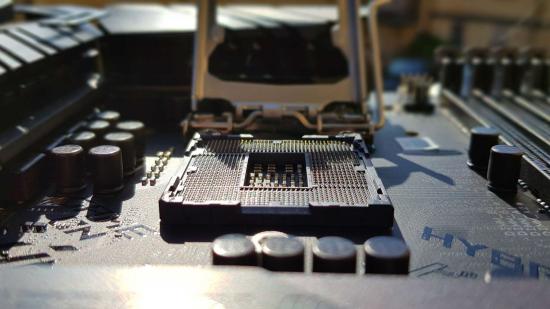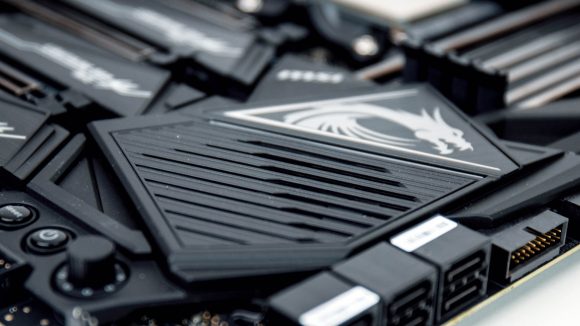Will Intel Comet Lake support PCIe 4.0? No. But there’s a debate raging on as to whether it could have. Tom’s Hardware spoke to sources claiming a few LGA 1200 socket motherboards feature some of the necessary parts for PCIe 4.0, but Intel’s chipset blunders were to blame for a lack of eventual support. However, SemiAccurate’s Charlie Demerjian rebuts their claims.
According to Tom’s, Intel’s partners were reportedly ready to ship LGA 1200 motherboards fit, in part, for the advanced PCIe 4.0 specification. However, an issue in developing 400-series chipsets reportedly has forced Intel to ditch support and settle for PCIe 3.0 signalling rates. That’s theoretically half the available bandwidth platform-wide.
Demerjian has since tweeted in response claiming “Comet never was slated to have and never will have PCIe4 for all the reasons I have been saying for the last few years.” Essentially, it’s the same PCH as Skylake and few changes are to be made to the 14nm design prior to Comet Lake’s slated 2020 release.
Whoever you side with, it’s apparent that Intel 400-series motherboards will not feature PCIe 4.0 – whether they were intended to or not. Personally, I lean towards the more pessimistic outlook of the two, if only because Intel have been reticent to shake up the Skylake platform so far in its exceedingly long life cycle, so why start now. I fear we’ll be waiting until 10nm for any momentous changes to the platform.
I checked, the Tom's story is 100% BS. Comet never was slated to have and never will have PCIe4 for all the reasons I have been saying for the last few years.
— Charlie Demerjian (@CDemerjian) January 21, 2020
There’s always the chance that Intel briefly toyed with rough-and-ready PCIe 4.0 support off the back of existing signalling traces. AMD proved that it’s possible on PCIe 3.0 chipsets to some extent, but delivers irregular and inconsistent results. Hence why it locked out pre-X570 support with firmware and called it a day.
Not that gaming has a great deal to benefit directly from the switchover from today’s PCIe 3.0 standard to PCIe 4.0 anyways. As proven by the AMD Ryzen 3000 launch and PCIe 4.0-compatible X570 chipset.
Few, if any, gaming graphics cards will reap any benefit from the expanded bandwidth of PCIe 4.0. Games will not wholly benefit from the change, either. Only platform storage, such as NVMe SSDs that can be limited by PCIe 3.0 bandwidth, have much to gain. The Samsung 980 Pro SSD announced at CES 2020 would be unable to run at its touted 6500MB/s read and 5,000MB/s write speeds on a PCIe 3.0 system, for example.
Whether that’s of much concern to PC gamers is largely determined by what else you use your PC for besides gaming. A workstation is going to see a much greater performance uptick as result of the change.
Aside from questionable PCIe specifications, Intel Comet Lake will likely introduce a new socket, LGA 1200. There’s backwards compatibility out the window, then. These 10th Gen chips will also see Intel offer 10-core, 20-thread processors to the non-HEDT client market for the first time, built upon the 14nm foundation laid out by Skylake.

